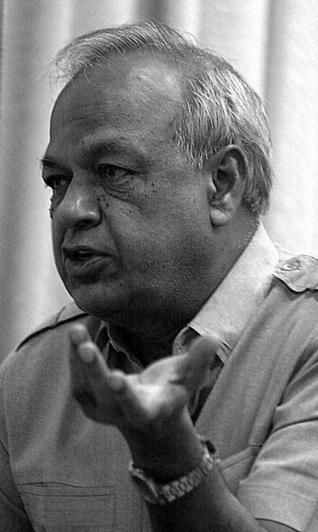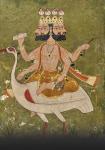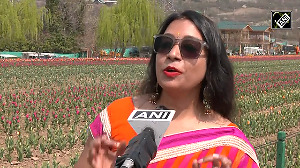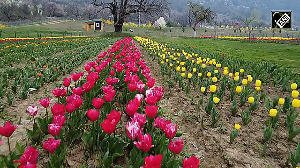'I well remember the article you have published because prior to sending it to you, he had shown it to me and I can vouch for its contents in the form in which you have published it. That was why I gave the permission to Rediff.com for publishing it,' says B S Raghavan, the distinguished retired IAS officer who himself handled intelligence matters for nine years.
Sheela Bhatt reports.
 As expected, the forces who stubbornly refuse to see the legal facts of the Yakub Memon case have tried to undermine the significance of Mr B Raman's column, which Rediff.com published on Thursday, July 23.
As expected, the forces who stubbornly refuse to see the legal facts of the Yakub Memon case have tried to undermine the significance of Mr B Raman's column, which Rediff.com published on Thursday, July 23.
Mr B S Raghavan, the distinguished retired IAS officer and Mr Raman's elder brother, has come out with the strongest defence of his brother who died in June 2013, saying he remembers Mr Raman's views on the Yakub Memon case and that the details of Mr Raman's column are correct.
"My brother, B Raman, and I used to have discussions on almost all matters connected with security and intelligence, as they were interests shared between us," Mr Raghavan told Rediff.com
"In his case, it was from the perspective of an intelligence operative, while I had handled security and intelligence issues in the home affairs ministry for nine years (1961 to 1969), besides being a member of the Joint Intelligence Committee. This common ground led both of us to exchange ideas and views on most topics connected with security and intelligence in person or over the phone," Mr Raghavan added.
Mr Raman, image, left, was unmarried and every week he would visit his brother at his Adyar, Chennai, home where they would discuss security issues for hours.
"He more or less used me as a sounding board for whatever he wrote," Mr Raghavan added. "I well remember the article you have published because prior to sending it to you, he had shown it to me and I can vouch for its contents in the form in which you have published it. That was why I gave the permission to Rediff.com for publishing it."
Mr Raman's contention -- a very important legal point -- that Yakub Memon was picked up by Indian intelligence agencies not from the Old Delhi railway station but from Kathmandu, Nepal, is being ignored.
Mr Raman, who headed the Pakistan Desk at the Research and Analysis Wing, India's external intelligence agency at that time, wrote, 'In July 1994, some weeks before my retirement, he was informally picked up in Kathmandu, with the help of the Nepal police, driven across Nepal to a town in Indian territory, flown to Delhi by an aircraft of the Aviation Research Centre and formally arrested in Old Delhi by the investigating authorities and taken into custody for interrogation. The entire operation was coordinated by me.'
Since these facts were not brought before the court which awarded the death penalty to Yakub Memon, his lawyers and human rights activists are looking for legal avenues to address the anomaly of the case presented by the prosecution.
ALSO READ










 © 2025
© 2025